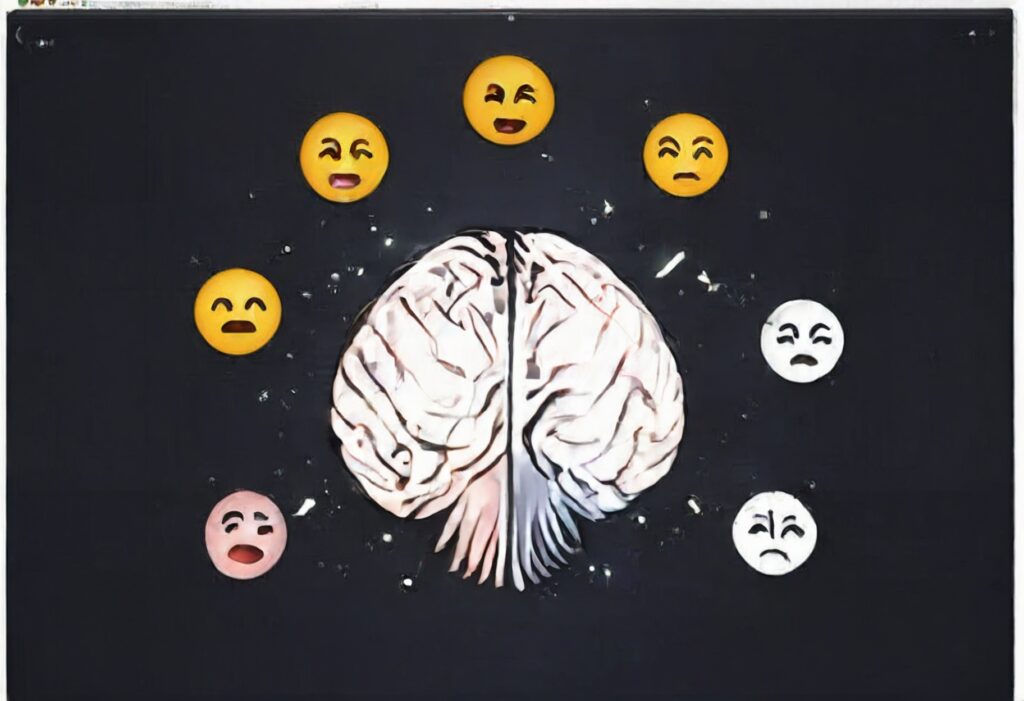In this informative article, we will explore the crucial role of emotional intelligence in leadership and its profound impact on team performance, employee satisfaction, and organizational success. Business professionals will gain valuable insights into the development of emotional intelligence and its role in effective leadership, addressing the needs of those seeking to understand its significance in driving organizational excellence.
What is Emotional Intelligence?

Emotional Intelligence is the ability to feel, identify, and manage one’s own emotions and the emotions of others as well that people hold, whether consciously or unconsciously. In the case of leadership, EI refers to the ability to regulate one’s own and the team’s emotions to act for the good of the organization.
No doubt, the role of EI in leadership is very important. As noted by the Harvard Business School, studies indicate that leaders with high emotional intelligence perform the tasks of running a business better. I feel that they are skilled at establishing effective connections with people, engaging their followers, and making appropriate decisions under extreme pressure.
The Impact of Emotional Intelligence on Team Performance

Leaders must know the role emotions play within teams. Leaders with emotional intelligence will develop a peaceful organizational culture, where all or most of the employees are made to feel valued and appreciated. This strengthens team unity and enhances active participation in discussions. If leaders are sensitive to the team members, hear them out, and assist in settling quarrels, the performance of the unit improves. Research findings showed that teams with leaders who are emotionally intelligent portrayed remarkable teamwork in the tasks they performed.
(EI) helps the teams succeed in the workplace. It means being good at understanding how people feel and how to handle those feelings so everyone works better together.
Let’s explore how emotional intelligence makes teams work like a well-oiled machine:
1. Makes Teamwork Smoother
Think about a time when you worked on a group project with others. Things went smoothly if your team were on the same page, right? That’s what EI does. Emotionally intelligent people can notice and help when someone is feeling stressed or confused. So, without letting anyone be left behind, the whole team moves forward.
2. Builds Confidence and Trust
Now imagine, you are working on another group project with your friends. You need to trust each other to complete the project, if you don’t trust each other, your team will fail. EI plays the role of glue and establishes trust among team. The team members recognize their feelings and emotions as well the others’ also with the skill of emotional intelligence to build trust. So, because of the trust established with EI, the team members will feel confident to share their ideas and overall the team gets stronger and better.
3. Solves Problems Quickly
Even the best teams suffer from problems. Maybe someone in the team disagrees with an idea, or there’s a deadline that feels impossible to meet. But, with the proper strategy of EI, the team can solve problems in no time without wasting their time arguing or getting frustrated. Instead, they focus on the problem, discuss it calmly, and find a solution that works.
4. Keeps the Team Positive
To keep the team positive and energetic, the team members must tune themselves with each other’s emotions. They should encourage each other and celebrate the small wins to boost the team’s mood and morale. It’s like when you and your friend cheer each other on during a game and support each other and you feel better and motivated! This is a good technique for EI.
5. Encourages Creative Thinking
Thanks to emotional intelligence, the team members feel comfortable with each other. They come out with more creative ideas and think outside the box. They share their creative ideas because their teammates will listen without judgment and their ideas might solve their problem. Everyone feels safe to speak up, which results in better problem-solving and innovation.
6. Prevents Burnout
If there is a lot of work to do in a short time, then working can get overwhelming sometimes. Emotionally intelligent leaders can sense when one or more teammates get tired or stressed. They know it is time to take a break or lighten the load to keep things balanced. They look out for each other and in this way, everyone stays energized and positive.
7. Helps Everyone Grow
When teams practice emotional intelligence, everyone learns and grows together. Team members become better at understanding not only others but also themselves. This self-awareness makes them more patient, focused, and motivated to improve. As a result, the entire team becomes more skilled and adaptable over time, ready to tackle any challenge that comes their way.
The impact of emotional intelligence on emotion management:

We can handle our emotions better by utilizing the proper strategy of EI so that we can communicate well and have better relationships with others which will make us feel better and healthier
It is important in both personal and work situations. Stress can be handled easily at work by managing emotions properly to work well in the organization. This can make work better and help everyone do a good job. It also helps in personal relationships, making them stronger and helping solve problems. In general, it helps people get along better with others.
The impact of emotional intelligence on social awareness:

Social awareness means being able to understand how other people are feeling and seeing things from their point of view. People with high emotional intelligence can tell how others are feeling and know how to act in different social situations. This helps them make good friendships and do well in jobs where they need to lead other people. People who are good at understanding and controlling their feelings can be very helpful in a busy job. They can stay calm when things are hard and help everyone get along. They can also understand how other people are feeling and work well with them. This can make a job better for everyone and help get more things done.
How emotionally intelligent people use emotional intelligence:

Emotionally intelligent people have exceptional understanding and triggers in their emotional state, as well as that of others. It helps them turn into good friends, problem solvers, and wise choice-makers. They are good at managing their own emotions, which helps them stay cool in tough situations. Emotional intelligence is a significant and crucial bit of talent that allows people to be superb in their personal and professional well-being.
It is this ability that forms our idea of how to feel and what to do. We should use it all the time, to help us make sense of what we feel and what other people might be feeling (if they are angry or upset or afraid or happy). That is so that we can do justice with our feelings and also help others to make them feel comfortable, happy, and good from the inside.
Emotional Intelligence and Employee Satisfaction

People who are good at understanding and managing their feelings can make their employees happier at work. They can help their employees with problems and give them good advice, which makes the work environment better.
Leaders can make their employees feel happy and good at their jobs by listening carefully, looking at them when they talk, and understanding and reacting to their feelings. When employees feel appreciated and helped, they will work better and care more about the goals of the company.
According to certain studies, when employees love their jobs, they become productive, thus benefiting the entire company. Such organizations experience a lower turnover, have higher creativity and originality, and effectively meet their goals.
Having EI fairly seems like the possession of superpowers- for instance, picturizing the ability to know how a colleague is feeling without uttering a word. That is its beauty. People with high EI can keep their emotions in check yet reveal an acute awareness of their surroundings. They thus become more caring, more supportive, and all in all, a pleasure to be with and work with.
As far as employees are concerned, EI is invaluable in promoting employee satisfaction and morale. Why? Because they understand better how their coworkers are faring. This enhances their interaction and relationship with each other. They know perfectly when it’s appropriate to jump in to assist, when to motivate, and when it’s necessary to back off.
Decoding Affect:
Understanding others’ affections is a significant benefit for emotional intelligence leaders. For instance, when an employee is feeling stressed or something is phasing them out, they will see it, and they will intervene so as to create a relieving atmosphere. This enhances the office etiquette during working hours.
Clearer Expectations:
All the people with a high level of EI are not only talkers but also appropriate listeners. This means that there will be no or fewer cases of miscommunication than before and no chances of fighting either. Employees who feel that they have been listened to more often are less anxious and thus become interested in their tasks.
Enhanced Job Retention:
Employees feel happy in their jobs when they perceive that there is empathy from the people in authority. People are happy, they will achieve more, stay longer and all of them joined hands and developed a positive environment in the workplace.
Improved Collaboration:
With emotional intelligence in the workplace, teamwork becomes easier a great deal of the time. It is similar to being on a team with well-trained athletes, except everyone understands their position and how they can help one another. As a result, the day’s work becomes more seamless and enjoyable for all.
Emotional Intelligence and Organizational Success
The overall importance of emotional intelligence for both an organizational culture and its success mustn’t be minimized. Thus, emotionally intelligent leaders are capable of creating a culture based on shared ideas and aim to support all the workers of the company. People in the organization become free to share their ideas and concerns since they realize that no one will fool or punish them. As far as decision-making and addressing conflict are concerned, it can be seen that being able to control one’s emotions and feelings, as well as the emotions of the other person to some extent, will increase the efficiency of the process. As for some companies that benefited from implementing the concept of emotional intelligence in their company culture and their overall success, it is possible to refer to Google, Microsoft, and General Electric.
Developing Emotional Intelligence in Leadership
Becoming emotionally intelligent at the level of leadership is something that starts with self-awareness and willingness to learn and be knowledgeable. Leaders looking to grow their emotional intelligence skills may find training and development programs aimed at improving them beneficial.
Leadership Tips to Increase Your Emotional Intelligence:
Taking advantage of resources such as feedback from colleagues, self-reflection and prospective-based empathy can enhance your emotional intelligence. Through the consistent development of their emotional intelligence, leaders can deliver an even better leadership style that will make a bigger impact.
Conclusion
To sum up, effective leadership wholly depends on the emotional intelligence it possesses and is directly proportional as the higher the EI of a leader, the greater team performance, employee satisfaction & organizational success. Emotionally intelligent leaders have the skills necessary to exist within this complex environment, relate well with colleagues and stakeholders, and make good decisions in high-stress situations. Developing emotional intelligence is how leaders can foster a positive and inclusive work environment that cascades up to higher levels of team performance, employee job satisfaction, and greater organizational success.
.
FAQs
can emotional intelligence be acquired and developed?
Emotional intelligence can impact our Personal as well as social and cultural life. Therefore, the impact of emotional intelligence is undeniable in our personal as well as social lives. In personal relationships, high emotional intelligence drives self-awareness and self-regulation, helping us to control our emotions better. This can result in much healthier relationships in life and how you communicate with friends and family.
Being emotionally intelligent can help us negotiate social complexity, empathize with others, and forge deeper more meaningful relationships in our social life. Therefore, building emotional intelligence results in a richer, more rewarding, and harmonious individual and social life.
can emotional intelligence help anxiety?
Emotional intelligence can help to alleviate anxiety by helping individuals understand and deal with their emotions properly. The more people understand themselves and their anxiety triggers, the better they can put into practice practical coping mechanisms. Examples are deep breathing, mindfulness, and positive self-talk. People who are more emotionally intelligent will also be better equipped to develop stronger relationships and a network of support, both of which can become invaluable tools that provide comfort and reassurance when several stressful situations confront you.
is emotional intelligence part of psychology?
Yes, emotional intelligence is part of psychology. It is the “ability to recognize, understand, and manage our own emotions” but also at the same time, “it is the ability to recognize, understand, and influence the emotions”. In psychology, emotional intelligence is often studied from different aspects. Emotional intelligence is important in the aspect of human behavior, which includes relationships with other people, mental health, emotions, and decision-making behaviors.
Is It Important to Have an Emotional Intelligence in the Workplace?
Yes, it is important to have emotional intelligence in the workplace. One of the reasons is that emotionally diverse people have a broader range of behaviors to choose from. In other words, with higher emotional intelligence, an individual can manage their emotions help them to prepare for new or changed experiences in life.
In addition, it helps people experience the feelings of others and communicate or cooperate better. Lastly, for the leadership position, people who possess high levels of emotional intelligence can understand the people and then satisfy their emotions. This can help build a comfortable working environment.
Is emotional intelligence a quality?
Yes, it is a quality. Emotional intelligence includes strong personal skills, ability to understand and cooperate with different groups of people, good experience, and empathy. According to research, emotional intelligence is associated with better social skills, better decision-making, and better leadership. However, the development of emotional intelligence requires a lot of effort and can take long. Flippen stated that “turning behaviors into habits can take months, even years”.




